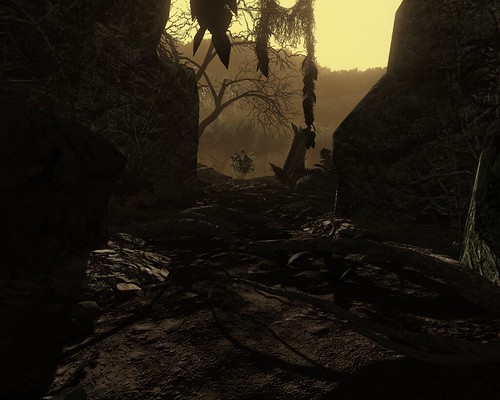
I went to bed last night thinking about the ending of Far Cry 2. My response, entirely subjective, was a mix of dismay and real, genuine sadness. The feeling was comparable to the one I get at the very conclusion of the Harry Potter series – a kind of melancholy sadness at having to say goodbye to this mind-blowing world, compounded by the tragic events of the closing pages. Similarly, I know there are many people who don’t like the Harry Potter series, or the ending, and can’t help but think that some people will react similarly to Far Cry 2. The ending is imperfect. It’s flawed. But for those few of us who now care about this game, it’s also deeply emotional.
I can forgive the flaws of the ending, however, and now rate it as one of my all time favourite videogame conclusions ever. Partly it's because it is going to be somewhat unpopular, and I don’t want it written off or forgotten. But in it’s depths I can see the glimmer of the potential that it was trying to achieve. Hocking’s Masterpiece.
Far Cry 2 is about the individual; death; nihilism. The contentious design decisions, even the whole game, only starts to make sense when viewed through this lens. Like a David Lean epic from the golden era of cinema it deals with many concepts and issues all viewed through the prism of a central concern. Doctor Zhivago’s conceit was viewing the Russian revolution through the personal story of one man. Similarly Lawrence of Arabia also possessed the same focus on viewing history as it orbited around an individual. Far Cry 2 is about you and death. Of course every single person you meet wants to kill you. Of course you spend about as much time fighting the environment as other persons. Of course you are clinging to the barest scrap of health and well-being; Even the malaria is trying to kill you.
Some people will probably want to throw around that clichéd phrase “You’re a survivor” and the sentiment that goes with it, but the truth is, you’re not. Take from that what you will, but Far Cry 2 reminds at every possible opportunity that life is fatal. No one gets out of this place alive. It makes for what I believe to be truly the first game that goes beyond, or outright rejects, the mental switch-off performed by pathological mass-murderers and videogame players. That switch you flick in your brain when playing a shooter - the small part up the back that empathises with your victims, and which is incompatible with what most games narcissistically tell us – that you should survive, you deserve it, you’re the hero. Here instead, nihilism is the name of the game.
As the man you have been trying to kill says, “No one is going to die today that didn’t have it coming.” Far Cry 2 screams that we all have it coming.






